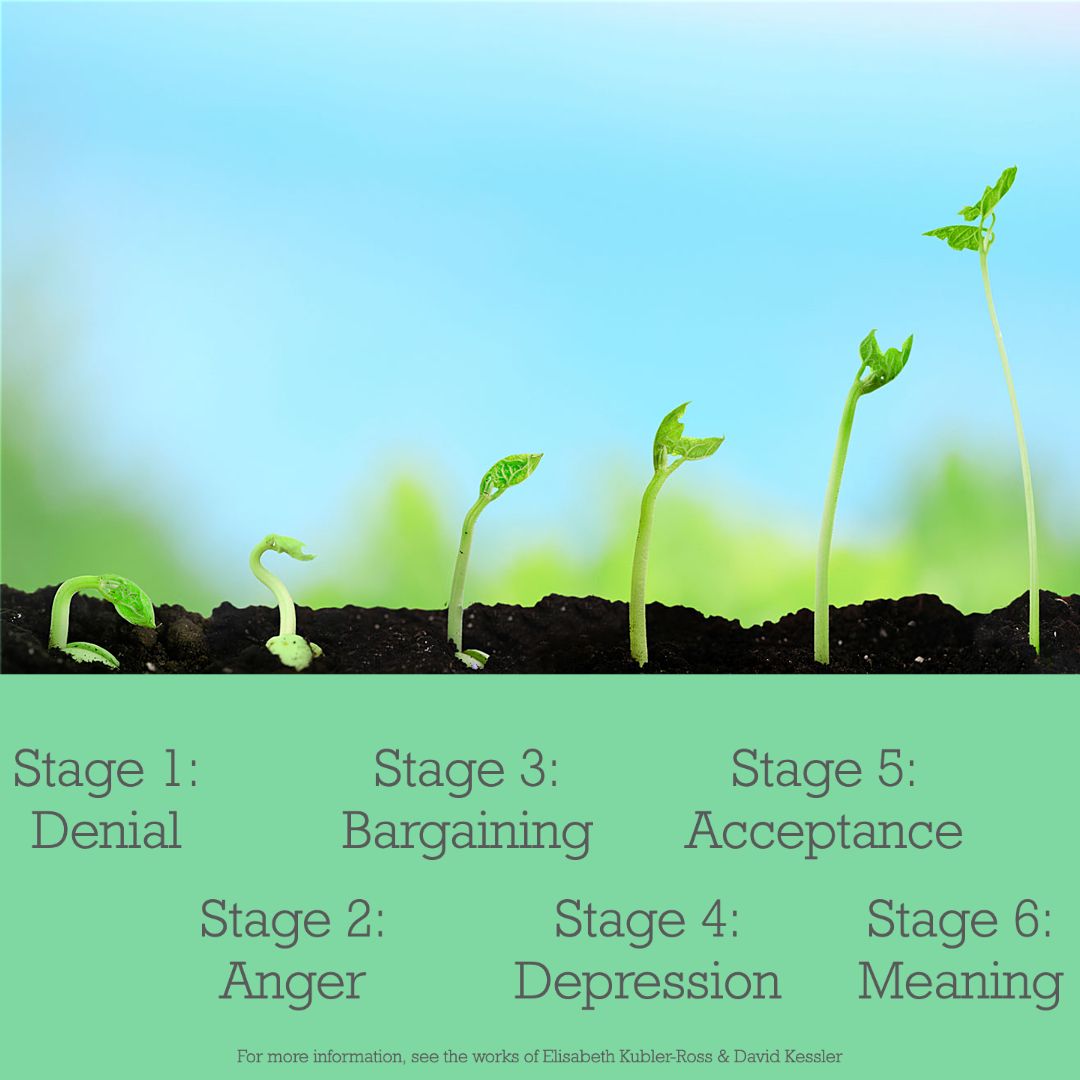Have questions you'd like us to answer?
Hello, my friends. Today, it’s been two years since my father passed away. Grief has been my constant companion during this time, and I’ve learned that it is a natural and essential part of the healing process.
In these years, I have reflected on my father's life, written about him, visited his grave, shed many tears, and laughed remembering his countless stories.
I’ve experienced the six stages of grief in different ways and at different times. Before we dive into the stages, let's quickly recap the first five stages from the work of Elisabeth Kubler-Ross, a grief expert. They are denial, anger, bargaining, depression, and acceptance. David Kessler, another grief expert (who was mentored by Kubler-Ross), identified the sixth stage, meaning. Let me walk you through how I’ve experienced these stages.
Stage 1: Denial
I’d also have to wake up and remind myself that it wasn’t just a nightmare. My mind and heart didn’t want to believe that he was gone.
Stage 2: Anger
But, as the days and weeks passed, the reality sank in, and I moved into the stage of anger. I was angry at the world and even at God for not healing him. I would drive around hoping someone would pick a fight with me, so I could unleash the beast I felt inside of me. Don’t worry, it never happened. I’ve still never hit anyone. I’m more of a lover than a fighter. That’s why the anger surprised so much.
Stage 3: Bargaining
Stage 4: Depression
Stage 5: Acceptance
Stage 6: Meaning
In these years, I have reflected on my father's life, written about him, visited his grave, shed many tears, and laughed remembering his countless stories.
I’ve experienced the six stages of grief in different ways and at different times. Before we dive into the stages, let's quickly recap the first five stages from the work of Elisabeth Kubler-Ross, a grief expert. They are denial, anger, bargaining, depression, and acceptance. David Kessler, another grief expert (who was mentored by Kubler-Ross), identified the sixth stage, meaning. Let me walk you through how I’ve experienced these stages.
Stage 1: Denial
Denial was the first stage for me, as I struggled to accept the reality of my father's loss. I found myself thinking that he would knock on the door at any moment. He had a very distinct, powerful way of knocking.
I’d also have to wake up and remind myself that it wasn’t just a nightmare. My mind and heart didn’t want to believe that he was gone.
Stage 2: Anger
But, as the days and weeks passed, the reality sank in, and I moved into the stage of anger. I was angry at the world and even at God for not healing him. I would drive around hoping someone would pick a fight with me, so I could unleash the beast I felt inside of me. Don’t worry, it never happened. I’ve still never hit anyone. I’m more of a lover than a fighter. That’s why the anger surprised so much.
Stage 3: Bargaining
Bargaining came next. I found myself thinking that if I had done things differently, or if I had been known more about the medical treatment processes, maybe my father would still be with me. With all of us. With stage came so many other questions too. Most without any answers. But I still listened to them and heard my heart out. If I had it, I asked it.
Stage 4: Depression
Depression followed, as I struggled with the overwhelming sadness and emptiness that filled my life. Everything that used to matter now felt meaningless. The question, “What’s the point?” was constantly popping up in my head. Because I have a history with depression and anxiety, both of those issues can back stronger than ever. Side note: anxiety can be another stage can show up at point in the process.
Stage 5: Acceptance
Acceptance was a turning point for me. It was a gradual process, but as time went on, I came to accept that my father was gone, and that I had to find a way to move forward. Not get over his loss. Not find someone to replace him—that would be impossible. Just move forward.
Stage 6: Meaning
Finally, I entered the stage of meaning, where I began to look for ways to honor my father's memory and find a sense of purpose in the reality my loss and the life I could still have. For as long as I can remember, I’ve wanted to be just like him, even though I didn’t look as much like him as I wanted to. Now, I feel like he passed the “mantle” to me. I know I can’t be the Peter Piñon he was, he was one of a kind, but I can be the best Peter Piñon I can be.

On Death and Dying
By Elisabeth Kubler-Ross
Finding Meaning
By David Kessler
I Wasn't Ready to Say Goodbye
by Brooke Noel & Pam Blair
A Grief Observed
By C.S. Lewis
Write your awesome label here.

